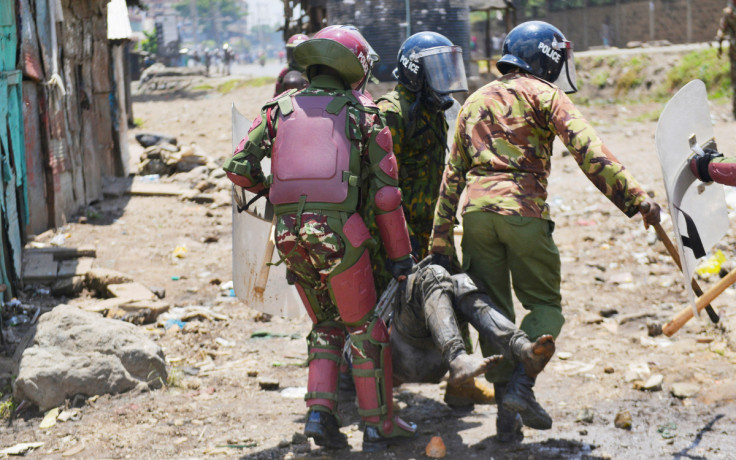Religious, Rights Groups Call For Calm In Kenya's Second Week Of Protests

Religious leaders and human rights groups in Kenya called for calm on Tuesday as a second week of protests against cost of living increases raised fears of further violence, while President William Ruto said criminals would be held to account.
Opposition leader Raila Odinga, who lost to Ruto in last August's election, is leading the protests against the high cost of basic staples and has called for rallies every Monday and Thursday to pressure Ruto's government to take action.
Late on Monday night, unknown perpetrators set fire to a church and several businesses in Nairobi's low-income Kibera district, and a mosque was also damaged. One person was shot dead in the western city of Kisumu, near Odinga's ancestral home.
Unidentified people vandalised a property belonging to Odinga's family and a farm owned by former president Uhuru Kenyatta, who supported Odinga in the election, Kenyan media reported.
Police have said they will investigate. Allies of the government and the opposition blame each other for the attacks.
Religious leaders warned the violence could turn into the ethnic fighting that tore the country apart following the disputed 2007 election, after which more than one thousand people were killed.
"We are calling on all politicians to refrain - to cease and desist - from using inflammatory language ... to advance hard stances and incite their ardent followers which has inadvertently led to the unfortunate events of last night," the Inter-Religious Council of Kenya said.
The group also asked for politicians to engage in dialogue.
Amnesty International Kenya Executive Director Irungu Houghton said people of all religions and ethnicities had been affected by Monday's violence.
'BIG LOSS'
Kibera resident Joseph Maloba lost his business in Monday night's attacks.
"This is a very big loss," he said as he walked over the smouldering remains of his tyre shop.
"I've lost over 500,000 Kenyan shillings ($4,000) ... I don't know how I will recover," he said.
The damage to businesses could present a challenge to the government's efforts to rebuild an economy hard-hit by soaring inflation and drought.
"It affects people that cannot afford to not make money during a whole day," said Meron Elias, an analyst at International Crisis Group, citing the case of motorcycle taxis.
Each day of the protests has cost the country about 3 billion shillings ($23 million), the Kenya Private Sector Alliance said.
Criticising the attacks on his business and invasion of Kenyatta's farm, Odinga said the protests would continue until Ruto addressed the high cost of living in Kenya.
"This struggle will march on stronger and mightier ... until our demands our met," he said.
On a visit to Germany, Ruto said the protests were a typical challenge of democracy and vowed to safeguard the lives and property of Kenyans, warning that "all those involved in criminal activity, whoever they are, whatever their status is, will be brought to book."
($1 = 131.7000 Kenyan shillings)
© Copyright Thomson Reuters 2025. All rights reserved.





















